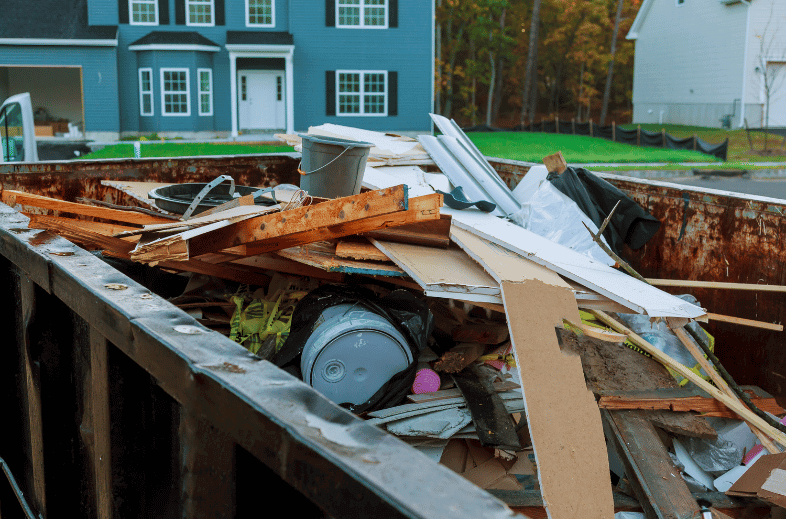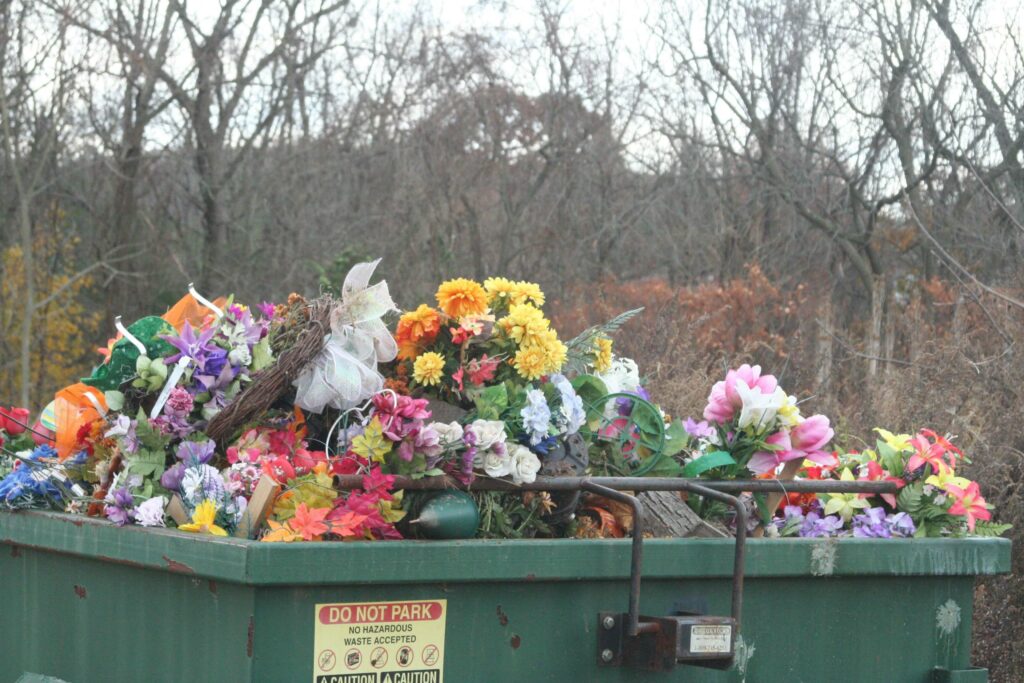Dumpster diving, often considered a unique and resourceful activity, has gained popularity among individuals seeking to reduce waste, find useful items, and even uncover hidden treasures. It involves rummaging through discarded materials in dumpsters or trash receptacles to salvage items that are still functional or valuable.
While it may not be for everyone, those who engage in dumpster diving often highlight its environmental benefits and the thrill of discovering unexpected treasures. In this guide, we will explore some of the best places to dumpster dive, where you can potentially find discarded goods, discarded food, or even unique items that can be repurposed or reused. So, if you’re ready to embark on an unconventional adventure and embrace a more sustainable lifestyle, read on to discover the best places to dive into the world of dumpster diving.
What is Dumpster diving?
Dumpster diving refers to the practice of searching through dumpsters, trash bins, or other waste receptacles to salvage items that are still usable or valuable. It is often undertaken by individuals who are looking to reduce waste, find free or low-cost items, or repurpose discarded goods. While the term “dumpster diving” may evoke images of diving into dumpsters, it can also involve rummaging through trash bags or exploring the contents of larger waste containers.
Dumpster diving can yield a variety of findings, including food, household items, electronics, clothing, furniture, or even valuable items that have been discarded. Some people engage in dumpster diving as a means of reducing their environmental impact by rescuing usable items that would otherwise end up in landfills. Others see it as a way to obtain necessities or unique items without spending money. It is often considered a form of recycling, reusing, and repurposing.
Best places to dumpster dive
While laws and regulations around dumpster diving can vary depending on the location, it is generally legal in many places as long as individuals do not trespass or violate any specific laws related to waste disposal. It is important for dumpster divers to exercise caution, wear appropriate protective gear, and practice good hygiene when engaging in this activity.
Dumpster diving has gained attention as a method of promoting sustainability, resourcefulness, and reducing waste. It is often embraced by individuals who value frugality, environmental consciousness, and a desire to challenge consumer culture by finding value in discarded items.
1. Grocery Stores
Grocery stores typically follow consistent schedules for discarding unsold or expired items. Dumpster divers who are familiar with these patterns can time their visits accordingly, increasing their chances of finding fresh and desirable items.
Aside from large quantities of food that are still edible and safe to consume, grocery stores also dispose of non-food items such as household products, personal care items, or even electronics. These items may be slightly damaged, have minor defects, or simply be excess stock. Dumpster diving in grocery stores provides an opportunity to find useful items that can be repurposed, reused, or even resold.
2. Restaurants and Cafes
Restaurants typically have higher-quality food compared to grocery stores due to their focus on fresh ingredients and culinary standards. In addition to food, restaurants may dispose of other valuable items, such as kitchen equipment, tableware, furniture, or decorative items. Dumpster diving in restaurants provides an opportunity to find useful items for personal use or potential resale.
Restaurant dumpsters are usually located in easily accessible areas, such as back alleys or loading docks. This makes it relatively convenient to explore and retrieve items without trespassing or attracting unwanted attention.
3. Office Buildings
Office buildings often dispose of a wide range of office supplies, such as stationery, printers, electronics, furniture, and more. Office buildings often upgrade their technology and electronics, leading to the disposal of functioning equipment. Dumpster diving can provide an opportunity to find computers, monitors, peripherals, or other electronic devices that are still in good working condition. These items can be repurposed or resold, reducing electronic waste and promoting sustainability.
4. College Campuses
College students often dispose of items at the end of the semester or when they move out of dormitories. These items can include furniture, electronics, books, clothing, and kitchenware, which may still be in good condition and can be reused or repurposed.
College campuses typically have multiple dumpsters located throughout the campus, making it easier to find a larger quantity and variety of discarded items in one area.
5. Retail Stores
Retail stores often have a policy of returning or disposing of items that are damaged, returned by customers, or are no longer sellable. These items might still be in usable condition, making them potential finds for dumpster divers. Retail stores also often have a policy of returning or disposing of items that are damaged, returned by customers, or are no longer sellable.
Some retail stores receive sample products from manufacturers or distributors. When these samples are no longer needed or have reached their expiration date, they may be discarded, presenting an opportunity for dumpster divers to find free samples or small quantities of products.
6. Apartment Complexes
Apartment complexes often have a high turnover rate, with tenants frequently moving in and out. During these transitions, tenants may discard items they no longer need or find difficult to transport, such as furniture, electronics, or household goods.
Apartment complexes typically have multiple dumpsters or waste collection areas to accommodate the needs of many residents. This can increase the chances of finding a variety of discarded items in one location.
7. Residential Areas
Residential areas are home to individuals and families who discard a variety of items on a regular basis. This can include furniture, appliances, clothing, electronics, and more. Residential dumpsters can also contain personal belongings that individuals no longer want or need. This can include books, toys, kitchenware, decorations, and other items that may be of interest to dumpster divers.
Compared to commercial areas or public spaces, dumpster diving in residential areas may have less competition. Fewer people may engage in this activity, increasing the chances of finding desirable items without facing intense competition from other divers.

8. Electronics Stores
Electronics stores often deal with customer returns and exchanges. While these items may be functional, stores may choose to dispose of them due to store policies, warranty considerations, or the inability to resell opened or used items.
Electronics stores also often have display models that are periodically replaced with newer models or discontinued products. These display models may be discarded, presenting an opportunity to find fully functional electronics.
9. Thrift Stores
Thrift stores may receive donations that don’t meet their criteria for resale due to various reasons, such as limited storage space, specific inventory needs, or certain restrictions. Thrift stores also may dispose of items that are damaged, broken, or unsold after a certain period. While these items may not be suitable for sale, they could potentially be repaired or repurposed by individuals who find value in them.
10. Bookstores and Libraries
Bookstores often receive promotional materials, advanced reader copies, or free literature from publishers. These materials may be discarded after their intended use, presenting an opportunity to find free reading material or collectible items.
Bookstores sometimes dispose of outdated or damaged art supplies, such as markers, pens, or paintbrushes, that were used for in-store demonstrations or customer events. These discarded materials could potentially be salvaged and repurposed for artistic or creative projects.
11. Bakeries
Bakeries offer a wide range of products, including bread, pastries, cakes, and more. By dumpster diving at bakeries, you may come across a diverse selection of baked goods, allowing you to enjoy a variety of treats without having to purchase them.
Bakeries often have to discard unsold items at the end of the day due to their commitment to providing fresh products. These items are often still edible and can be a great find for individuals looking for free food.
12. Pet Stores
Pet stores often have to discard items that are no longer sellable or have minor damages. By dumpster diving at pet stores, you may come across pet supplies such as toys, bedding, leashes, bowls, and even unopened pet food or treats. Some pet stores also discard items like cages, carriers, or crates that are still in decent condition.
13. Construction Sites
Construction sites often have dumpsters filled with discarded building materials such as lumber, bricks, tiles, or metal scraps. Construction sites also sometimes discard items that are not required for the project. This could include furniture, fixtures, or appliances that can be repurposed.
Construction sites may dispose of tools or equipment that are no longer needed or have minor issues. You may find usable tools like hammers, wrenches, drills, or even power tools that can be repaired or refurbished.

14. Repair Shops
Repair shops often have dumpsters or bins where they dispose of damaged or faulty items. Finding usable items or components through dumpster diving at repair shops can help you save money when reselling. Instead of purchasing brand-new items or tools, you can potentially find what you need at little to no cost.
15. Floral Shops
Flower shops often discard floral arrangements that are no longer fresh or have minor imperfections. Flower shops may also dispose of vases, pots, ribbons, or other decorative items that are no longer needed. Just remember to be cautious when handling flowers or items found in dumpsters, as they may be wilted, damaged, or potentially unsanitary.

16. Hotels
Hotels often have a large volume of guests, and sometimes valuable items may be lost or discarded by mistake. Hotels may also dispose of items that are still usable or in good condition but no longer meet their standards. This could include furniture, appliances, linens, or other items that individuals may find value in.
17. Warehouses
Warehouses often receive and store a wide range of products, making them potential treasure troves for dumpster divers. From electronics and appliances to furniture, clothing, and even food products, warehouses can provide a diverse array of discarded items.
Warehouses often dispose of items in bulk, without extensive sorting or separation. This means that valuable items can be found alongside other discarded goods, increasing the likelihood of finding desirable items without much effort.
18. Hardware stores
Hardware stores are commonly associated with construction projects and renovations. Dumpster diving in these stores can yield discarded building materials, such as lumber, tiles, paints, or hardware, which can be repurposed for personal use or creative projects. Hardware stores also often dispose of items that are still in good condition but may have minor defects, outdated packaging, or small cosmetic flaws.
Tips when Dumpster diving
Dumpster diving is not only an environmentally friendly activity that reduces waste, but it can also be a lucrative venture for those interested in reselling. By salvaging discarded items and giving them a second life, dumpster divers can uncover hidden treasures that have significant value in the resale market.
It’s important to approach this activity responsibly and with respect for the property and regulations. Here are some valuable tips and tricks to help you make the most of your dumpster diving adventures.
- Safety First. Wear sturdy gloves to protect your hands from sharp objects, broken glass, or hazardous materials. Ensure you have proper footwear to prevent injuries. Be cautious of your surroundings and avoid diving alone, especially in unfamiliar areas.
- Use Proper Equipment. A headlamp or flashlight will allow you to navigate dark areas, while a sturdy step ladder can help you access higher bins safely. Carry a backpack or reusable bags to transport your finds and minimize waste.
- Know the Laws and Regulations. While it’s generally legal in many places to collect discarded items from public trash bins, private property regulations may vary. Always respect “no trespassing” signs, and avoid diving in areas where it’s explicitly prohibited.
- Choose the Right Time. Visit commercial areas and residential complexes during non-business hours or after move-out dates for higher chances of finding valuable items. Keep an eye out for community-wide clean-up events or large-scale renovations, as these often result in a surplus of discarded items.
- Check Expiration Dates and Damage. Consuming expired or damaged food can pose health risks. Use your judgment and prioritize safety when deciding what to take home.
Think outside the box and keep an open mind while dumpster diving. Valuable finds can go beyond furniture and electronics. Remember, one person’s trash can be another person’s treasure.
Dumpster diving: FAQ
While dumpster diving can be rewarding, it’s not without risks and challenges. Some potential challenges include encountering unsanitary conditions, encountering aggressive individuals or animals, facing legal issues due to trespassing, and dealing with rejection or stigma from others. Being prepared, informed, and respectful can help mitigate these challenges. SO here are some FAQs about Dumpster diving to help you.
Is dumpster diving legal?
The legality of dumpster diving varies depending on your location and local laws. In many places, it is legal to take items from public trash bins. However, diving on private property without permission is generally considered trespassing. It’s essential to research and understand the laws and regulations in your specific area.
Is dumpster diving safe?
Dumpster diving can present certain safety risks. It’s important to prioritize your safety by wearing protective gloves, and sturdy footwear, and using proper tools when necessary. Be cautious of sharp objects, broken glass, or hazardous materials. Diving with a partner or in well-lit areas can enhance safety.
What can I find while dumpster diving?
The items you can find while dumpster diving can vary widely. Common finds include food, clothing, furniture, electronics, books, and more. The potential treasures depend on the locations you explore and the timing of your dives.
How do I choose the right dumpster diving location?
Look for places where discarded items are likely to accumulate, such as grocery stores, retail outlets, residential complexes, or college campuses. Timing is crucial, so consider visiting these locations after business hours, during community-wide clean-up events, or when major renovations occur.
Can I resell the items I find while dumpster diving?
Yes, many people engage in reselling items found while dumpster diving. However, it’s important to research market values, assess the condition of the items, and comply with local regulations. Building an online presence, joining reselling communities, and networking with other resellers can help you maximize your reselling opportunities.
How can I minimize waste while dumpster diving?
Minimizing waste is an essential aspect of responsible dumpster diving. Focus on taking items that you genuinely need or can repurpose or repair. Avoid creating a mess, and always leave the dumpster in the same or better condition than you found it.
Can I donate the items I find while dumpster diving?
Yes, donating items you find while dumpster diving is a great way to give back to the community. Ensure the items are clean, functional, and appropriate for donation. Many local charities, shelters, or thrift stores accept donations of gently used items.
Conclusion
Dumpster diving is an intriguing and environmentally conscious activity that can yield surprising rewards. By knowing the best places to dumpster dive, you can significantly enhance your chances of finding valuable items. From grocery stores with discarded food and household items to residential complexes during move-out periods, various locations provide ample opportunities for fruitful dives.
Remember, always prioritize safety, respect property rights, and adhere to local laws and regulations. Additionally, be mindful of leaving dumpsters clean and tidy and taking only what you genuinely need or can repurpose. Networking with fellow divers and engaging in online communities can also provide valuable insights for discovering additional hotspots in your area.
So, embrace the thrill of exploration, reduce waste, and uncover hidden treasures by diving into the best places for dumpster diving. With a sense of adventure and responsible practices, you may just find that one person’s trash can truly be another person’s treasure. Happy diving!

